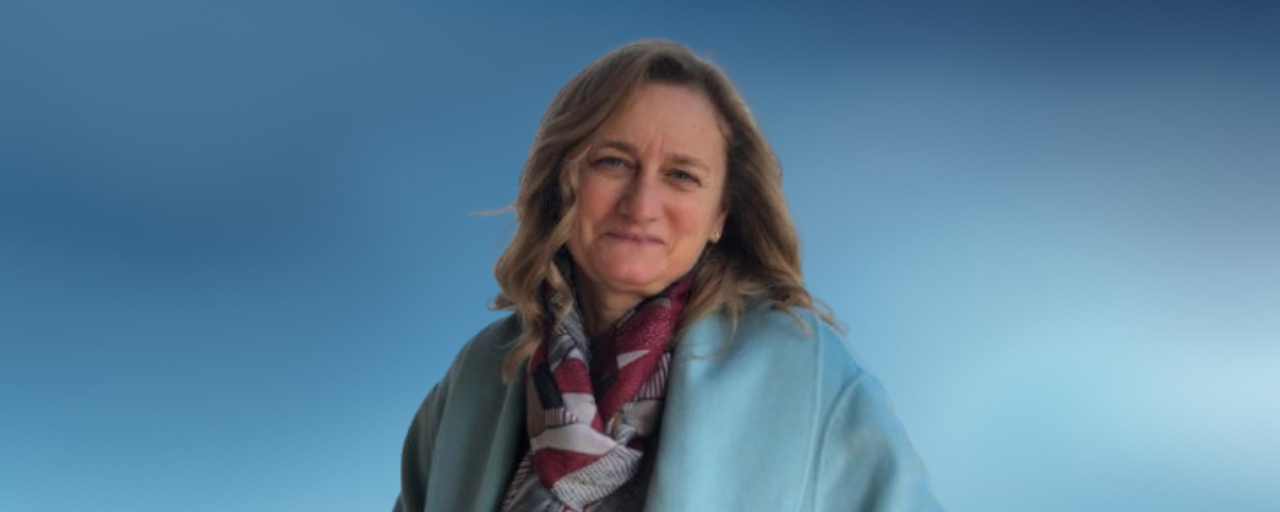With a solid academic background and a long career in management consulting at KPMG and McKinsey, Cristina stands out for her expertise in strategic planning, management control and organizational systems development, applied to diverse sectors. A certified public accountant and auditor, Cristina is driven by a deep passion for numbers and the social value of “good causes.” In addition to her professional career, she was an A2 Series athlete in volleyball. Let's get to know her better.
Your career spans several sectors, from for-profit to nonprofit. What were the key moments that contributed to your professional growth and current vision?
The first key factor was the presence of 'masters': my parents, who always encouraged me to have a free and critical spirit; then in Rome in KPMG and in Milan in McKinsey, I found special people who “mentored” me in my career, which started at the age of 22, as soon as I graduated.
Key moments I remember so many: moving to Rome when I was 23, moving from auditing to consulting, being proposed by McKinsey, which was the top management consultant for me, introducing me as an “intern” in Telethon in 2003.
What drew you to the world of nonprofit organizations and consulting for entities in the sector? What values or principles guided you on this path?
I had already become interested in the world of nonprofit organizations in the early 1990s; in particular, I had come across Telethon because KPMG had participated in one of the first editions of the TV marathon.
In 2003, after taking a course for managers of non-profit companies (that's what the third sector was called then), I “reinvented” myself, offering myself as an intern at Telethon.
I had a desire to put my experience to use in areas then “unexplored” by consulting, where profit was not the main lever, and I realized the need for a managerial and technical approach on so many issues. My goal was and is to “give back” ...
In this long journey in the world of the third sector I have met many “beautiful” and generous people, I have become passionate about the “purpose” of many organizations, I have found “masters” everywhere and collaborated with “students” who today hold important roles.
In AIL Bologna, Italian Association against Leukemia, Lymphoma and Myeloma, for example, I had a fantastic “master,” the President, Professor Sante Tura of Bologna, one of the fathers of Italian hematology. On my first day as director, instead of talking about numbers and collection strategies, he handed me the textbook of Hematology exam for medical students, explained to me in scientific but extremely understandable terms the frontiers of research for the treatment of hematological diseases, and took me on a tour of the departments and research laboratories. What better way to make job sense?
How did the decision to become a business angel and join IAG mature? What fascinates you most about this role and the association?
I was inspired by my husband Marco Becca, who has been a Business Angel since 2012. I find so many similarities with the third sector world, I admire the organization of IAG, where young people play a prominent role and so many experienced people put themselves at the “service” of the mission. I always find the meetings stimulating, I wish I had more time to devote, but for now I am content....
When evaluating an investment, what characteristics do you look for in founders or teams in terms of inclusive leadership and respect for diversity?
When I evaluate an investment, I first get passionate about the topic, the problem behind the start-up: I look for an idea that can have “impact” in making the world a better place. For example, I am always very intrigued by new frontiers in medical science, education issues, and ideas to improve the environment.
In the founders I particularly appreciate passion, creativity and expertise; I always try to catch a glimpse in their eyes of a “vision” for a different world.
How do you think diversity & inclusion will evolve in the coming years, both in the Nonprofit sector and in social impact startups? What challenges and opportunities do you see?
I must confess that, observing the current trends in many countries around the world, including Italy, I am not very optimistic...that is what I believe today. However, I remain hopeful for a different future.
I hope so much for the advancement of the younger generation, civil society organizations and particularly the third sector to have a countervailing force. Right now, I am working on, among other things, the evolution of welfare systems, where a pact between generations could significantly change the scenarios.
I am a great believer in the role of education, I think the school system, particularly in Italy, needs to be deeply reformed. I am very fascinated by the example of Don Milani, who in 1950s Italy saw school as a place of cultural and social emancipation, designed to combat inequalities.
Today there are “new” and old inequalities to fight, we need to “refound” our way of being “aware” and “supportive” citizens, starting from school and civil society.
Your background as a Series A athlete has imparted a competitive spirit and strong discipline. How have these sports experiences influenced your approach to leadership and business support?
I am, indeed, a somewhat competitive person in sports, although today I only practice yoga and meditation, disciplines based on body/mind balance.
When I played volleyball competitively, I was really very young. I experienced even in that field the importance of “masters” and the recipe of diversity for a team's success. I played with athletes older than me, some foreign, some already mothers. The beauty of the group lay in this mixture of histories and generations and in helping each other. On the court we were one “thing.” An institution on our team was the gym custodian, an Iranian, an engineer, who charmed us with his tales of his country and his boundless culture....
If you had a business angel “superpower,” what would you do to make Italy a more inclusive country open to social impact?
Italy is a country with a high propensity to save, particularly in some “senior” generations. I would like the “magic wand” to touch the hearts of many people and make them sensitive to the importance of a pact between generations.
Investing in innovative start-ups is an example of putting this “pact” into practice.








